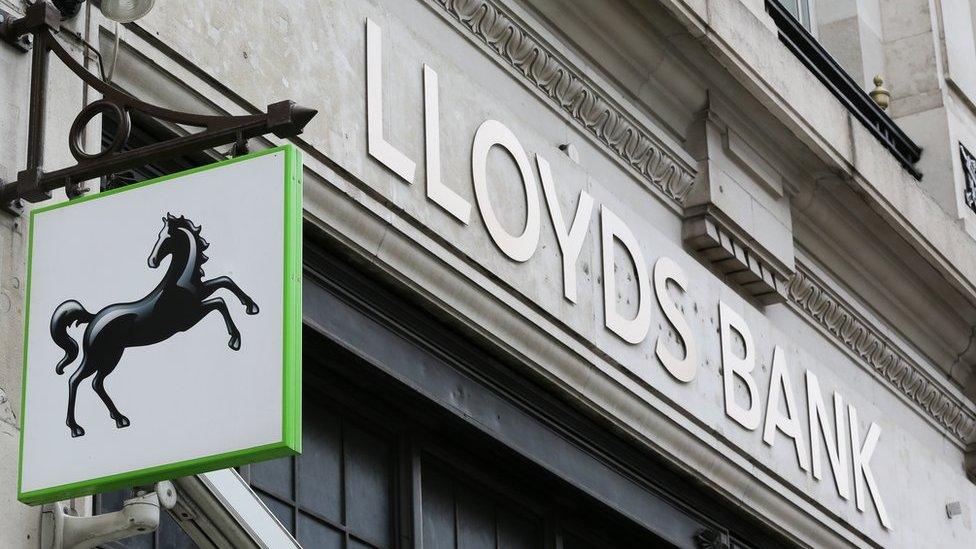Bank branch closures: What will the loss of Lloyds Bank mean for Hadleigh?
- Published
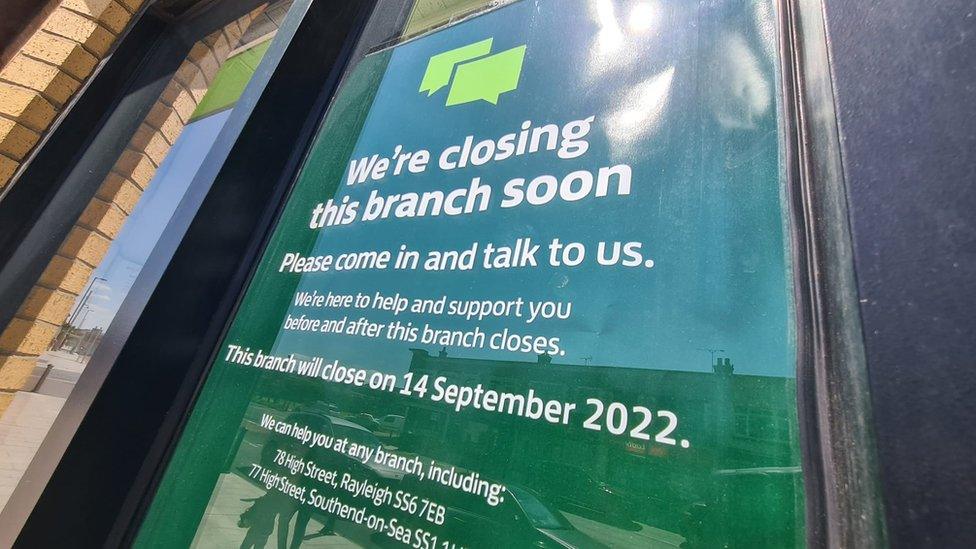
Lloyds in Hadleigh, Essex, is to close on 14 September due to "far fewer people" using the branch
Hadleigh in Essex is set to join its neighbouring towns of Thundersley and Benfleet in having no banks open on its High Street. So far this year, 16 branch closures have been announced in Essex. How will the closure of Hadleigh's Lloyds Bank, in September, affect people and businesses?

'It makes our shop less busy'

Elisa Downing says the cafe has seen a difference in footfall every time a bank branch has shut in town
Elisa Downing works at the Natural Bake cafe in Hadleigh and says bank closures are affecting business in a few ways.
"I think for us and for business, it makes our shop less busy. It [the bank] brings people in, because our clientele is elderly they like to go to banks, it makes them feel independent, so when doing that they pop in to see us," she says.
"It's really important. It brings people out and I think people, especially the elderly, like physical banks because it's face to face - you can have that discussion with people, you're not just a number on hold waiting ages and wasting your time."
As a small business, Ms Downing says having a bank in town also makes life easier for her when something goes wrong.
"If we have got a problem it's easy to run down there and get it sorted; we don't have to be on the phone for ages," she says.

'Town centres are an eco-system'
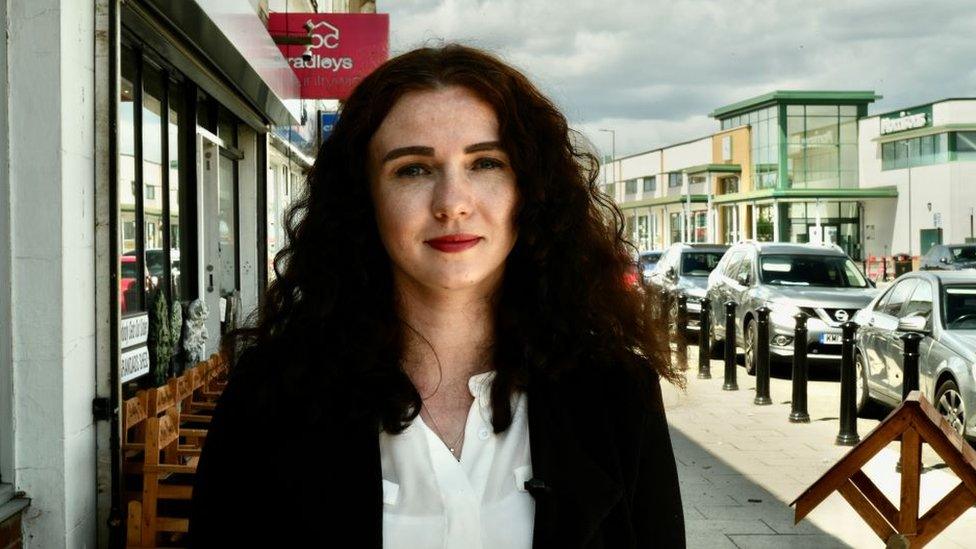
Small businesses "rely on access to cash", says Jade Uko of the Federation of Small Businesses
Jade Uko, from the Federation of Small Businesses, says easy access to cash is still important.
"Small businesses rely on access to cash and they rely on banking facilities to deposit cash as well," she says.
"We know that 25% of small businesses still say that 'cash is king' and that is a large amount of businesses still reliant on cash."
She adds: "Town centres are an eco-system. Access to cash needs to be protected not just for the consumer but for small businesses.
"We need to do what we can to protect High Streets."

'Sad for the elderly'
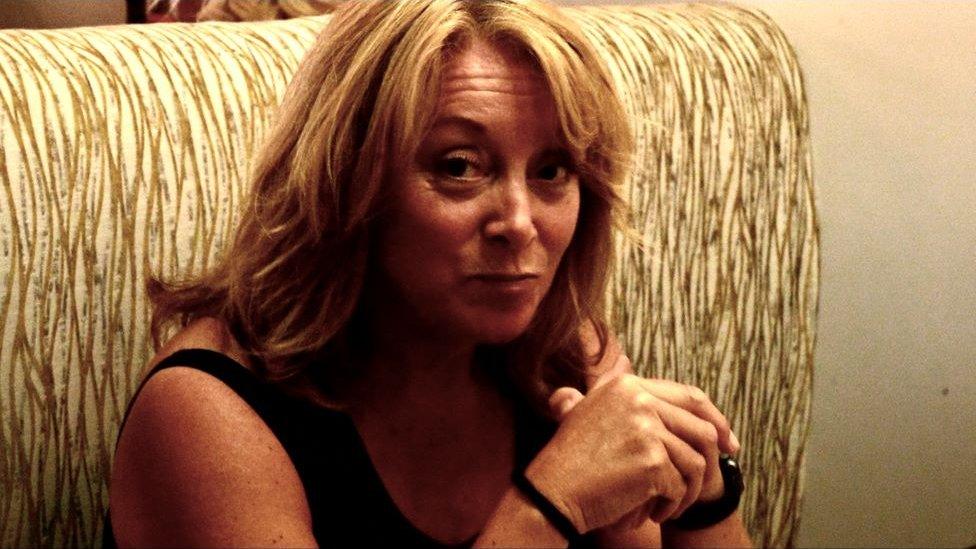
Sally Stubbington's own bank has shut down in neighbouring Benfleet and she says she understands people's frustrations
Sally Stubbington lives in Benfleet where her own bank, Barclays, has already closed for good.
She says she understands the difficulties people are facing in Hadleigh if they do not bank online or on the phone and need to travel further to get to to a bricks-and-mortar branch.
She says she has to travel to Corringham or Basildon, and "can see why" the banks are closing branches.
While she says it's less of an issue for her, it affects people like her mother.
"I think it's quite sad for the elderly," she said.
"Corringham is where my mum is, they've now decided to close that and the nearest one is Grays or Basildon.
"My mum doesn't do online banking, she's 92, so what is she going to do?
"It's a little community up there and I just feel quite sad for the elderly again."

'It's a bit sad'

Gill Cable thinks it is sad that bank closures could take away the independence of older people who do not use online banking
Gill Cable lives in Hadleigh and worries that the closure will affect people like her mum who enjoys the independence of going to the bank herself rather than relying on her family to help with doing it online.
"My mum is 87, she lives in Hadleigh and she used to bank with Santander on the corner, it was very popular but now they all have to go to Rayleigh," she says.
"Luckily, my mum is well enough at 87 to do that.
"People say we can do online banking for the elderly but that's just a bit sad because my mum doesn't have a computer so she can't do that.
"Why would she want me to? She wants to keep her independence."

A spokesman for Lloyds Bank, which is closing 60 branches across the UK, says: "We've seen far fewer people visit our Hadleigh branch over several years, with customers now choosing to do their banking in different ways."
Between 2016 and 2020, branch transactions fell more than 67% and by another 15% in 2021, the bank says.
They are advising customers that when the Hadleigh branch shuts in September they can travel to the nearest branch in Rayleigh, which is three miles away, or use the Post Office for physical banking options.

Find BBC News: East of England on Facebook, external, Instagram, external and Twitter, external. If you have a story suggestion email eastofenglandnews@bbc.co.uk, external
- Published1 October 2020
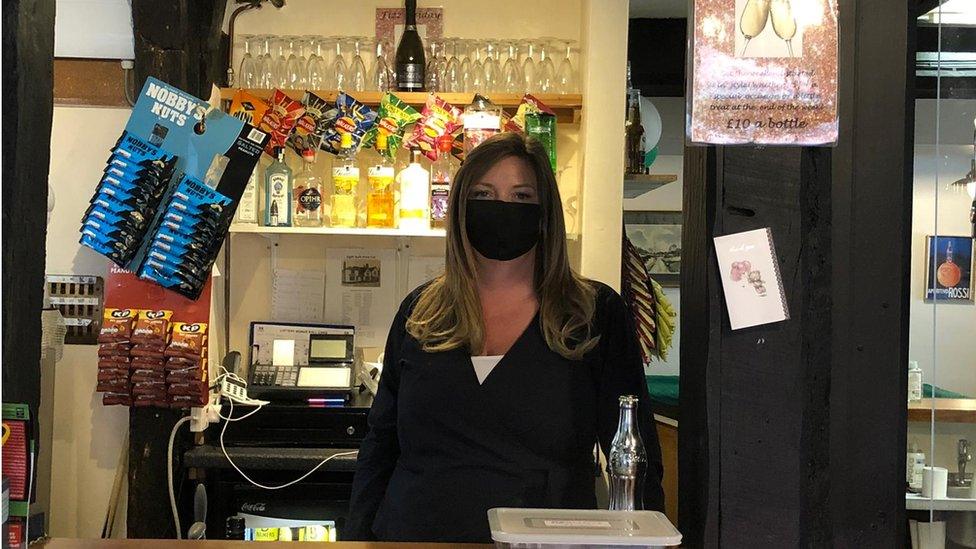
- Published23 May 2022

- Published24 March 2022
